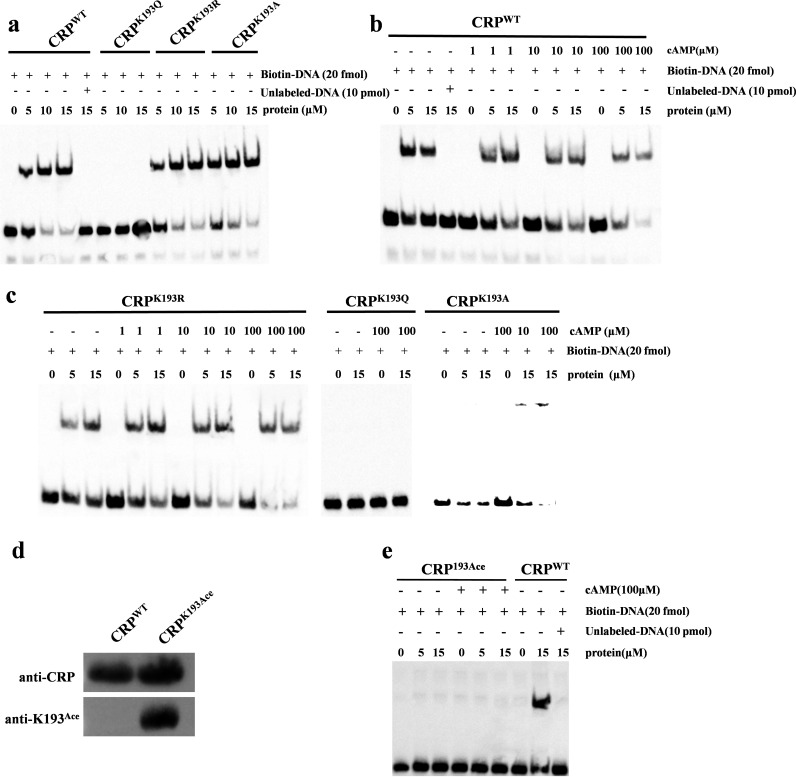FIG 1.
Acetylation of K193 site affects the DNA-binding ability of CRP. (a) DNA-binding abilities of CRPWT and CRP mutants. EMSA was used to evaluate the DNA-binding abilities of CRPWT and its derivatives at the indicated concentrations (0, 5, and 15 μM) to biotin-labeled target DNA 2D3 following a 20-min incubation. Lane 1 represents the labeled DNA alone. (b) DNA-binding abilities of CRPWT were evaluated with different concentrations of cAMP. (c) Effect of cAMP on DNA-binding abilities of CRPK193R, CRPK193Q, and CRPK193A evaluated by EMSA. (d) Western blot analysis of purified CRPWT and CRPK193Ace using a specific antibody against the acetylated K193 residue of CRPMtb, in which K193 was successfully acetylated (CRPK193Ace). Antibodies specific for CRP (anti-CRP; 1:2,000) and acetylated K193 peptides (anti-K193Ace; 1:2,000) were used. (e) DNA-binding abilities of CRPK193Ace and CRPWT. The binding of CRPWT to the target DNA 2D3 could be completed by a 500-fold excess of unlabeled 2D3 DNA as shown in lane 5 of panel a and lane 8 of panel e. The concentrations of cAMP and proteins used in the EMSA are indicated, and each EMSA result is representative of three independent replicates. K193Q, substitution of K193 with glutamine to mimic acetylation; K193R, substitution of K193 with arginine to mimic deacetylation; K193A, substitution of K193 with glycine.

